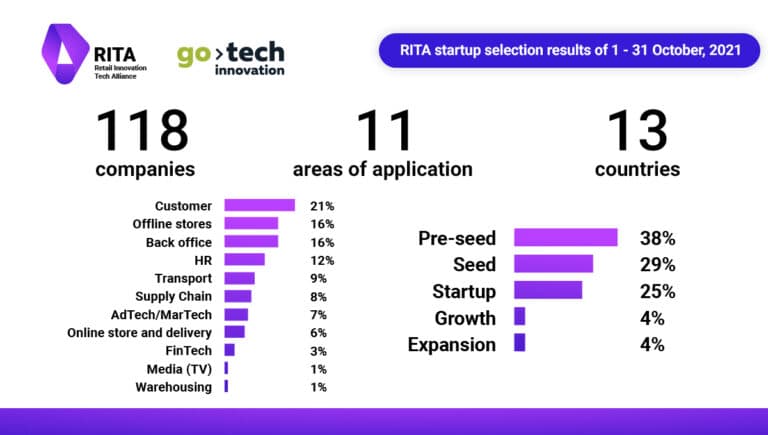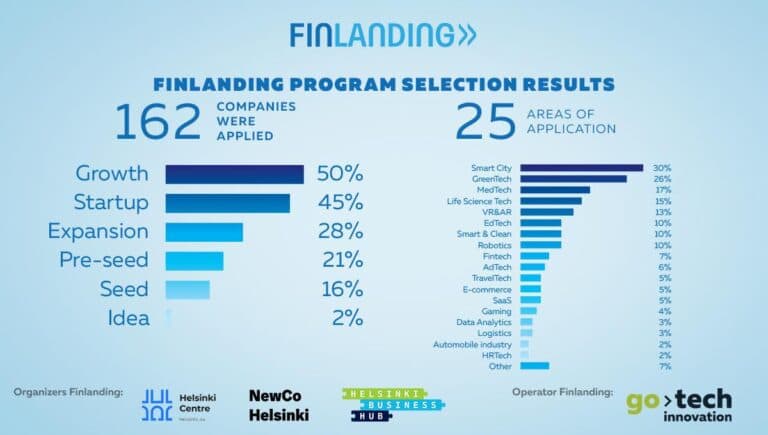
Present or future
Corporations in partnership with startups have two main goals. The first is to integrate into their business or product line the solution that is necessary to achieve specific tasks at the moment. In this case, as a rule, corporate accelerators or business incubators are created, where young companies get the opportunity to pilot their projects. The second goal concerns the solutions or technologies of the future. Corporations see that the project implemented by a startup has a future, so they try to invest in it. Thus, they have a chance, with the successful development of a startup, to gain a potential competitive advantage in the coming five or more years. Funding is provided through their own corporate institutions or funds, in the capital of which corporations participate, securing the advantage in buying a startup in the future. In any case, it is important for large companies not to miss a promising market player.
Four years in nine months
In other countries, both models of interaction between corporations and startups are being implemented. For example, Google has three investment funds with different strategies. Google Ventures invests in IT startups, end-user projects, and robotics. Capital G focuses on later stage startups, the fund doesn’t have many deals, but it does have well-known companies like Airbnb in its portfolio. Gradient Ventures specializes in artificial intelligence startups. This is a strategically important segment for Google, so engineers of the corporation can work in project companies.
Microsoft creates services and infrastructure for startups, and also invests in projects through a venture capital fund. The corporation system offers young companies tools, resources and expertise in project development, opportunities to enter the market with the help of mentors, technological support, seed financing, and the sales channels. This year, Facebook decided to create its own venture capital fund for small investments in startups. It will be part of the company’s New Product Experimentation division. More than 10 years ago, the corporation founded fbFund, which aims to micro-invest in developer projects for Facebook.
If we talk about infrastructure, it is interesting to pay attention to the projects of PepsiCo and Johnson & Johnson. The PepsiCo Business Incubator selects 10 promising startups annually and receives funding from the company. Mentorship, partnership support and networking are also available. Johnson & Johnson has established four Life Science Innovation Centers to conduct early-stage research and rapidly market finished products. In addition, the corporation operates a business incubator in the field of biotechnology, where you can rent an office or laboratory for free, and the results of its research do not have to be transferred to the company. Startups admit that with this model they achieve in nine months what would normally take about four years.
In Russia, corporations predominantly choose the first model. It is important to find a solution that will help here and now. With this model of cooperation, startups can receive compensation from corporations for expenses, sell them their development or apply for a grant, although it must be accounted for. In any case, corporations are trying to create favorable conditions for startups for development.
The most active scouter for young companies is the Retail Innovation Tech Alliance, which began work in February 2020 at the initiative of X5 Retail Group, Beeline, M.Video-Eldorado Group and Hoff. At this stage, corporations are negotiating cooperation with selected startups, we hope that the first results will be publicly announced by the end of the year.
Some of the leaders in digitalization – Mail.ru, Yandex and Sberbank – have already become the leading players in the segment of acquiring startups to differentiate their business and further growth. Such deals help them build and develop their own ecosystems for consumers. For startups that, for some reason, cannot attract venture funding, but fall into the focus of these corporations, it is quite possible to consider the option of selling the business to a strategic partner.
Why startups partner with corporations
There are lots of reasons, as in the case when we talk about the benefits for corporations when working with startups (more on that later).
Startups see corporations as partners that provide access, advice and strategic opportunities for mutual benefit in the short to medium term. Large companies can act as the first clients for startups, and they also become the source of a new audience: these are their own employees or clients. All of them can be an excellent base for development testing.
Contacts and resources are a very important element that startups receive in cooperation with corporations: tools, strategies, analytics, infrastructure. Where else in another place can you find a similar set of bonuses? If a company operates in international markets, then a startup seeking global development gets the opportunity to scale business in other countries with the help of its senior partner’s offices.
Corporations have long-term interests in cooperation, so they are interested in developing a startup. They free it from the influence of venture capital and enable it to grow steadily. To some extent, for a startup, problems like lack of funding, lack of support from experienced players or insufficient knowledge of the market are solved. You can learn from corporations – these companies are many times larger than any startup. The experience of their mistakes and even successes will definitely come in handy in the development of a young business.
If it comes to investing, then corporations can offer the purchase of a small share in the capital (up to 15%), but in the future a full-fledged takeover is not excluded.
What are the risks?
Working with corporations is a lot of pressure on a startup. But at the same time, it also disciplines, as no one wants to fail at a high level. Of course, patience is important. Corporations are by nature not as fast and agile as startups. Also, they may demand exclusive cooperation, which implies a ban on working with competitors. Startups can become overfocused in the area where the corporation operates: there will be a lot of contract work, which is difficult to reproduce in the future with some other market player.
And you shouldn’t expect that all communication will be with the executives of the company: CEO will delegate this function lower in the hierarchy – to the heads of specialized departments.
What are the benefits for corporations?
A study by the University of Washington Business School found that 40% of Fortune 500 companies stay in the list under 10 years unless they find new ideas or solutions to grow their businesses. Of course, partnering with startups helps you stay competitive over the long haul.
Startups are useful for corporations to improve their core business – in reducing costs, increasing profits, expanding market share. They take uncharted approaches to reach their goal, are fast and are more cost effective than most partners and providers.
In this case, corporations gain access to breakthrough solutions, the latest technologies and unknown business models, which cannot be achieved with the help of internal reserves due to lack of flexibility. Of course, cooperation with a startup will also change the portrait of the target audience. A typical mobile application created in partnership with a young team can provide an opportunity to expand your customer base and increase the profitability of your business. No one would argue that startups are more customer-oriented and can quickly adapt to their changing needs.
Another motivation is the development of its own team, which is reflected in the improvement of internal processes and the creation of a new corporate culture. The appearance of a partner in the form of a startup is a challenge to internal teams, a signal that it is necessary to develop through competition. At the same time, the corporation gains an advantage in developing its own brand, positioning itself as an innovative company ready for digital transformation.










